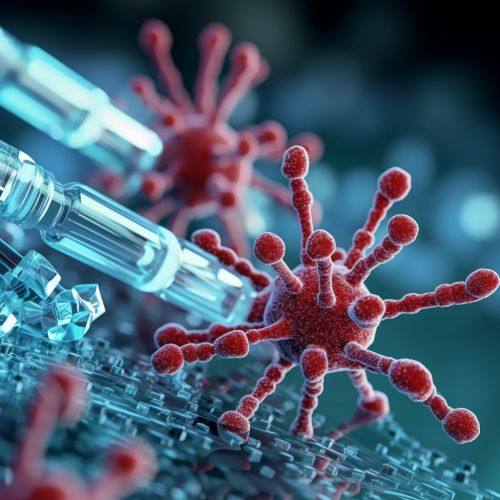Antibody-Drug Conjugates
Introduction
Antibody-drug conjugates (ADCs) are a class of biopharmaceutical drugs designed as targeted therapies for treating patients with cancer. They are complex molecules composed of an antibody linked to a biologically active cytotoxic (anti-cancer) drug. Through the use of a linker, these two components form a stable ADC that can target and kill cancer cells while sparing healthy cells.
Structure and Mechanism of Action
ADCs are composed of three main components: an antibody, a cytotoxic drug, and a linker. The antibody, often a monoclonal antibody, is designed to specifically target a protein (antigen) that is overexpressed on cancer cells. The cytotoxic drug is a potent molecule that can kill a cell once it is internalized and released. The linker is a chemical compound that attaches the drug to the antibody. It is designed to be stable in the bloodstream but to release the drug once inside the targeted cancer cells.


The mechanism of action of ADCs involves several steps. First, the ADC binds to the antigen on the surface of the cancer cell. This binding triggers the cancer cell to internalize the ADC into a vesicle, a process known as endocytosis. Once inside the cell, the vesicle is acidified, which triggers the linker to release the cytotoxic drug. The drug then interferes with cell division and ultimately leads to cell death.
Development and Design
The development and design of ADCs is a complex process that requires careful selection and optimization of each component. The antibody must have high specificity for the target antigen and good pharmacokinetic properties. The drug must be potent and have a mechanism of action that is effective against the targeted cancer cells. The linker must be stable enough to prevent premature release of the drug but also able to efficiently release the drug once inside the cell.
Clinical Applications
ADCs have shown promise in the treatment of a variety of cancers. As of 2020, nine ADCs have been approved by the FDA for the treatment of cancers such as breast cancer, lymphoma, and leukemia. Many more ADCs are currently in clinical trials.
Future Directions
The field of ADCs is rapidly evolving with new technologies and strategies being developed to improve the efficacy and safety of these drugs. These include the development of linkers that are more stable in the bloodstream, the use of novel cytotoxic drugs, and the design of antibodies that target novel antigens.
Challenges
Despite the promise of ADCs, there are several challenges that need to be overcome. These include the development of resistance to ADCs, the need for better targeting of cancer cells, and the management of side effects that can occur due to the potent cytotoxic drugs used in ADCs.
